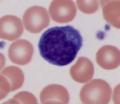
No one denies that the health care situation in sub-saharan Africa is in need of new solutions. How one can come up with innovative solutions to cost effectiveness of diagnostic tools or implementation of treatments is still debated ? A frequent argument is whether the current problems related to health care in Africa require a conceptual approach or an experimental approach. In other words, do we need for instance to look elsewhere for affordable AIDS treatment or create a brand new tool to test for cervical cancer ( conceptual approach) or do we tweak and adapt what already exists (experimental approach) ?
In Malcom Gladwell's next book, he will touch on how the US health care system reform needs a Paul Cezanne ( a experimental painter ) type approach and not a Picasso ( the definition of a conceptual artist ) type approach.
I will make the argument that in the case of health care in Africa, despite the urgency of the situation, we definitely need to build on what we have learned so far, and improve upon it.
The reasons ? There are many but here is a few:
1) there are too many lives at stake to implement ideas that have not been tested previously. The concept of promoting abstinence as the main protection against AIDS comes to mind. It's not a proven method and one cannot afford to wait for the results of such programs to replace others methods that have been fairly successful so far.
2) Although the current economic reality of Africa is different from the western world, the need for accuracy in diagnosis and efficient treatments is the same. Therefore, simplifying and adapating already proven tools to the specific needs of each regions is the most reliable way to acquire acceptable cost/effectiveness of medical tools. An example of such initiative is explained here.
3) In some ways, this point of view is a derivative of the incremental infrastructure idea that Ethan Zuckerman developped here; but centered on a cost reducing effort to make it more available. Ethan states:
"These projects are atomic: A small part of the infrastructure is useful by itself,[..] The projects are financed in part by users, lowering the costs for the operator[..] these projects are providing capabilities that weren't available before"The medical tools that often provides multiple options to the health care givers will be simplified to the maximum so that they achieve 2 things: 1) can be employed by community-based care givers 2) simplifying it would significantly reduces cost of the tools.
Obviously, there are many obstacles for the practical implementation of such strategies. Another inspiration for such projects are the projects presented at afrigadget where they are " solving everyday problems with African ingenuity." They are not reinventing the wheels, they are providing solutions.
There are solutions to the health care problems back home but it will take quite a bit of ingenuity, if not from our leaders, from ourselves.
(hat tip to Tnr for starting the conversation).

great post blablabl
ReplyDeleteHad to stop on the 10th cuz you know I need to spare my brain on week-ends...
Afrigadget is my no 1 Website this month! I spent endless hours (is it possible?) on their posts and daydreaming about my inventor's abilities...
ok..its not even friday...
bizzzz
En parlant de la différence entre conceptuel et expérimental, il y a aussi le développement localement à Mada des plantes médicinales et la vente des produits et services très bon marché et même TRÈS efficaces.
ReplyDeleteImagine-toi que Phy*** que je ne nommerai pas ici, a réussi à étendre son marché sur l'Europe mais ...a dû laisser tomber son appelation de Phy*** car selon les normes europpéennes ces produits ne sont pas du tout qualifiables.
Bon alors? Félicitons l'initiative ( et les couil***) de développer tout au moins sur le marché local cette pharmacopée qui nous adhère à la réalité et permet le développement des pratiques et remèdes que l'on connaît depuis des générations.
Je me sens toute amazonienne quand j'avale ces trucs verts, ou dans le Bush africain!
Bises L.
j ai mm pas l'impression de spammer, ni d avoir été hors sujet...
ReplyDeletele café le matin!
Coucou Jo,
ReplyDeleteL'ignare que je suis ignore totalement la suite de phy... je te demanderai pas email :).
coffee=good !
someone has been lazy on his plantes médicinales search, dont worry i m currently doing a GREAT NETWORKING blitzkrieg currently so...tonight i have some gifts for you on gmail
ReplyDeletebizzz
Abstinence will never be the solution as the only cost free leisure in Africa is making love.
ReplyDeleteThe african man is too macho to tell himself that he will never be able to hunt other women anymore.
I am sorry if I sound very crude but this is the reality, a woman is a trophy for an Afican man.
The best solution is of course the use of condoms but again this is against the African feeling of making love the natural way and of course of the belief that condoms don't really protect from aids.
@Daody,
ReplyDeleteI am going to have to disagree with the woman as a trophy analogy.
As for abstinence not being the solution, I will let the studies speak for themselves.
http://www.cbsnews.com/stories/2004/03/09/health/main604877.shtml
Based on what fact do you base your statement, because having spent quite a lot of time in Africa, I have seen this behaviour and this is why I made the statement, as for abstinence, like you say, let's wait and see.
ReplyDeleteI do not deny that this behavior exists somewhere in Africa, I am just waiting for a study that would show that this behavior is more prominent on the African continent than anywhere else. The only thing I am certain of is that, as an African man, I would not consider a wife a trophy and I would have to assume that I am not alone in that frame of mind.
ReplyDeleteLet's wait for the study then.
ReplyDelete